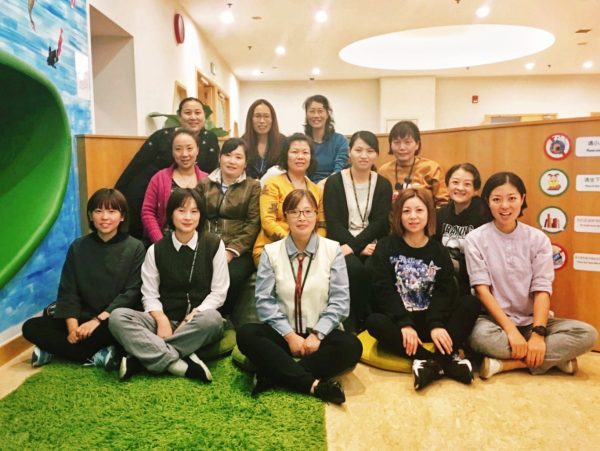What does respect look like and who deserves it?
I enjoy observing behaviour. Not merely the behaviour of children, for that is my job, but observing the behaviour of the adults within my sphere. Behaviour here is the way in which people act and conduct themselves in different situations. Colleagues, peers, parents, guests, professionals, friends, those of higher and lower social standing, those from differing cultural backgrounds and those from differing educational backgrounds - I guess it could be said that I’m a social observer with a keen eye for the nuances of behavioural language.
Behaviour is influenced very much by our experiences. Our emotional state and wellbeing will also impact on behaviour. Fundamentally, the values that are held as important to us underpin how we behave and conduct ourselves, especially towards others. Observing the behaviour of those around me affords me opportunity to unpick who they are, what is important to them and what the key influencers in their behaviour may be.
How people talk to each other, the way they treat others and their belongings, how people acknowledge the role of others, the tone of their voice, the acceptance of responsibility, how appreciation is shown towards those who help……all these small actions help to build a picture of who someone is. In observing the behaviour of the Hiba nursery families, I can see how children will be as they grow. Watching the daily interactions of the Hiba nursery teams provides an insight in to the personal character of each individual. I like to pay attention to who says good morning to the security guards, who treats the Chinese and Western team members equally, who says thank you to the nurse following morning check, who acknowledges the assistants in the classroom as much as the teacher, who makes eye contact and smiles at the property management team or the non-academic team who serve the nursery community behind the scenes. I am sure that those around me observe me too, they will judge me by the way I am, the way I behave, act, speak to them and those around me. I’m happy for that, as I should be held accountable in my position of responsibility to the nursery community.

Children are exceptional social observers. They rely on the adults in their lives to guide and support them in forming behaviours. Children observe and copy the way that adults behave towards them and others. They are perceptive and will analyse how the adults in their lives:
- Relate to their partners, spouses and parents
- Relate to other adults of the same sex (friends and relatives)
- Treat children
- Respond to strangers and acquaintances
- How work and family responsibilities are balanced
- Handle conflicts with others
- Treat their belongings and the belongings of others

If I could apportion one of the Hiba values as crucial to positive behaviour and conduct, I would of course identify
RESPECT. If you respect someone you are kind in the way in which you interact with them. Being responsible when in possession of or using others’ belongings demonstrates respect. Having the courage to hold face to face conversations as opposed to using social media demonstrates respect for the other person / people involved. Being consistent in respectful behaviour and conduct whether in the company of someone above you in social standing or beneath you in professional hierarchy is a clear sign that your moral compass points firmly towards your having integrity.
The teachers at Hiba nursery pledged their commitment to promoting the value of respect to all pupils. In the teacher’s handbook, ‘Inspiring Learning’ their commitment is:
- To value others’ work and opinions
- To treat others’ belongings as your own
- Everyone is equal and as such, should be treated fairly
- Respect is promoted though our use of language, greetings, manners and gratitude for those people who help us out

Parents and families can also make a pledge to their children to ensure that they:
- Demand good manners
- Don’t tolerate rudeness
- Teach listening skills
- Establish rules
- Encourage open mindedness
- Celebrate diversity
- Respect things as well as people
- Explain value – not always in monetary terms, but also in terms of importance and significance to you and your family. For example, ‘This book is precious to me as I have had it since I was a child.’
- Think less is more – don’t give children lots of everything and don’t make easy replacements. If it gets broken, it stays broken – don’t respond by saying, ‘Don’t worry, I’ll get you another one.’
- Make it clear – if you are allowing your child to have something, ensure you make your expectations clear. For example, ‘You can play with your brother’s remote-control car, but you must be careful and not crash it in to the wall.’
- Be the role model to your child of the person that you hope them to be
Adapted from
The Return of Respect
www.parents.com/toddlers-preschoolers/development/manners/the-return-of-respect
Without further ado, I would like to acknowledge our fabulous team of early years assistants who deserve far more recognition than I believe they get. This splendid group support all Hiba pupils in every aspect of their daily life. In addition to this, they support the teacher and teaching assistants, working tirelessly to ensure that we provide the very best education to all pupils and that Hiba nursery thrives. What’s more, they do it with pride, enthusiasm and a smile.





